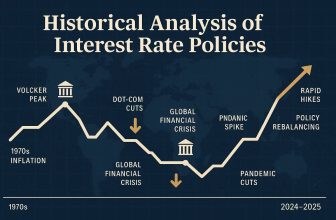Having a strong credit score is essential when it comes to borrowing money. It affects everything from getting approved for a mortgage to qualifying for credit cards with great rewards. A good credit score is also a key factor in securing lower interest rates, which can save you a lot of money in the long run. If your credit score isn’t where you want it to be, don’t worry—there are plenty of smart strategies to boost it.
In many cases, using borrowed money wisely can also help improve your score. A debt relief program, for example, can assist if you’re already dealing with debt. But beyond that, there are other strategies you can put in place today to give your credit score a healthy boost. Let’s take a closer look at some practical steps you can take.
1. Pay Your Bills on Time
One of the most straightforward ways to improve your credit score is by paying your bills on time, every time. Payment history makes up a large portion of your credit score—around 35%. Even one missed payment can have a significant negative impact, especially if it’s reported to the credit bureaus.
If you’ve missed a payment or two in the past, it’s never too late to start making consistent, on-time payments. Set reminders, automate payments, or link your bills to your bank account so you’re not accidentally late. Doing this not only keeps your credit score in check but also shows lenders that you are responsible with credit.
2. Reduce Outstanding Debt
If you’re looking to boost your credit score quickly, reducing the amount of outstanding debt you have is one of the best things you can do. The second largest factor in your credit score is the amount of debt you owe (30%). Specifically, credit utilization, which refers to the percentage of available credit you’re using, plays a crucial role.
Try to keep your credit utilization below 30% of your total available credit. For example, if your credit card limit is $1,000, aim to keep your balance below $300. Paying down your credit card balances is an effective way to lower your utilization rate and increase your score.
If you have multiple credit cards or loans, consider paying off smaller debts first. This tactic, known as the “debt snowball method,” can help you build momentum and gradually reduce your debt.
3. Use a Personal Loan to Consolidate Debt
If you have multiple high-interest credit cards, consolidating that debt with a personal loan could help you both reduce your interest payments and boost your credit score. When you consolidate debt with a personal loan, you’re simplifying your finances by combining your debts into a single loan with one fixed payment.
If you’re approved for a personal loan with a lower interest rate than your current credit cards, you can reduce the overall amount you’re paying toward interest. Not only can this make it easier to pay off your debt, but it also positively impacts your credit utilization ratio, which in turn boosts your score. Just be sure that you don’t run up your credit card balances again after consolidating—this can quickly undo all of your hard work.
4. Become an Authorized User on Someone Else’s Credit Account
Another trick to boost your credit score is to become an authorized user on someone else’s credit card account. Suppose the primary account holder has a good payment history and low credit utilization. In that case, you can benefit from their positive credit history without needing to apply for a credit card yourself.
Becoming an authorized user can increase your available credit and help you improve your credit utilization ratio. The primary account holder must make payments on time, as any negative marks on their account will also show up on your credit report.
Before pursuing this strategy, make sure the credit card issuer reports authorized users to the credit bureaus. Not all issuers do, and you won’t see a boost in your score if your name isn’t reported.
5. Keep Old Accounts Open
The length of your credit history is another important factor in your credit score (15%). If you have old credit accounts that are in good standing, keeping them open can help boost your score. Closing old accounts can lower the average age of your accounts, which could negatively impact your score.
If you don’t use an old credit card anymore, consider keeping it open and using it for small purchases each month to keep it active. This strategy helps maintain your credit utilization ratio and shows a long, positive credit history, which is attractive to lenders.
6. Avoid Opening New Credit Accounts
It might be tempting to open new credit cards or lines of credit to take advantage of promotions, but doing so can negatively affect your credit score. Every time you apply for credit, it results in a “hard inquiry” on your credit report. While a single inquiry won’t drastically impact your score, too many in a short time can hurt your credit.
In addition to hard inquiries, new accounts reduce your average credit history length, which, as mentioned, can lower your score. If you can, try to avoid opening new credit accounts while you’re working on boosting your score.
7. Dispute Inaccurate Information on Your Credit Report
Sometimes, mistakes on your credit report can drag your score down unnecessarily. Common errors include incorrect late payments, duplicate accounts, or accounts that don’t belong to you. It’s important to review your credit report regularly to spot these discrepancies.
You’re entitled to a free credit report once a year from each of the three major credit bureaus—Equifax, Experian, and TransUnion. If you find any errors, file a dispute with the credit bureau and provide supporting documentation to correct the mistake. Clearing up inaccuracies can quickly raise your credit score.
8. Seek Professional Help if Needed
If you’re struggling to improve your credit score or if you’re overwhelmed by debt, don’t hesitate to seek professional help. A financial advisor or credit counselor can provide personalized advice and strategies to help you improve your score. There are also credit repair services that can assist in correcting errors on your report and negotiating with creditors.
If you’re deep in debt, a debt relief service can help you find solutions that will ease the burden of multiple outstanding bills. These services can help you develop a strategy for paying down your debt and improving your credit score over time.
Conclusion: Consistency is Key
Boosting your credit score takes time and effort, but the results are worth it. By consistently paying your bills on time, reducing your debt, and keeping an eye on your credit utilization, you’ll see positive changes in your credit score. Using smart strategies, like consolidating debt or becoming an authorized user, can further help you reach your credit goals.





